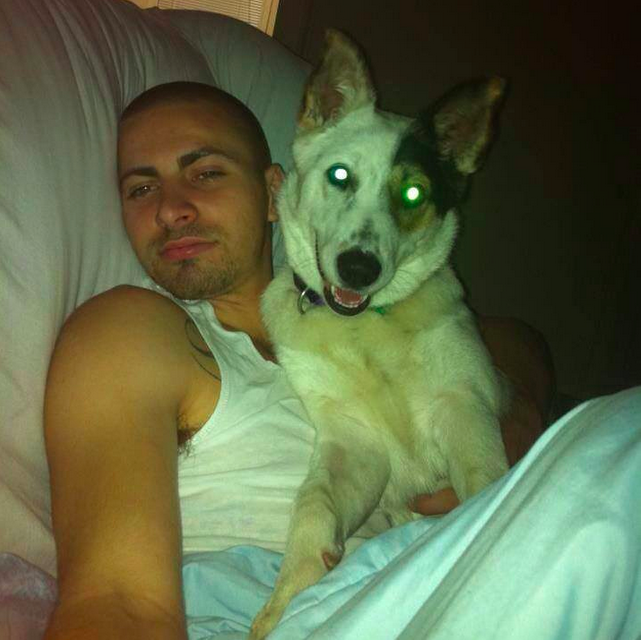April Fool’s day. A day when many of us allow ourselves to be pranksters and playful with those around us. On April 1, 2014, we lost that ability to be playful on this day. We lost our innocence.
By 4:30 a.m., the morning following that night, our entire world imploded. We were immersed into an unknown world of eternal turmoil, guilt, disbelief and shock. By 8:30 a.m., all of my remaining children knew Jaie was gone and we had begun to notify immediate family of his death.

Death by suicide.
Jaie took his own life and no one could even begin to comprehend why. Jaie has a beautiful fiancée and 7 month old baby girl, both of which he adored. He has a big brother, who was one of his closest friends and confidantes. His big sister is a ferocious protector of her little brother no matter what. Then, there was me, his mum, who no matter how difficult things were, I would always be there for him, when push came to shove.
Jaie has his maternal grandparents who love him dearly. He has his best friends, of whom all think he is an absolute treasure. Jaie knew all of this. Yet, still he killed himself.
We, his family and loved ones, are left behind with the eternal questions;
- Why? Why didn’t he…? Why didn’t I…? Why didn’t…?
- What could I have done to prevent this?
- How can we survive this?
- Will I lose another to suicide now?
- How did it get to this?
- Didn’t he know I loved him?
- Didn’t he love me/us?
These are only a few of the incessant and cruel questions. Then, there is also that lovely little friend who works amazingly well when combined with guilt — hindsight. Hindsight turns completely innocent historical discussions or incidents into a full-on blame game with ourselves.
Almost 30 months into our journey and I can say our minds and souls learn to manage the pain differently. We learn how to wear a mask and function like “normal” folks. Meanwhile, inside our chests, our hearts are tearing apart. In our skulls, our minds are constantly processing information received for potential triggers and emotional potholes.
Here’s an example: On the weekend, while riding, I saw a number plate with the year “‘93” on it. My instant thought was, “The driver is a year younger than Jaie.” My immediate thought after that was, “He is already a year older than Jaie was when he died.” I had to pull over to make myself breathe and to stop myself from wailing.
Individually, we are slowly learning to live with the constantly shifting sands under our feet. As a family unit, we are still struggling in many ways simply because of how close we were and are. Family gatherings are flawed now with the absence of a vibrant and energetic young character, who was irrepressible and made the room fill with energy.
His little daughter is full of that identical energy. We all try to take turns getting a dose of her, as if we are machines in need of a new battery to refill us with some vitality and desire to continue to live in this messed up world. Baby steps, I keep saying, is what we must do to survive. So we tip toe and try to find a suitable path back into life.
To learn more about Jai’s story and his family’s journey, you can follow @JaiesJourney and hashtag #WhyISpeakAboutSuicide.
Image via Thinkstock.
This post originally appeared on Our New Normal After Death by Suicide.
If you or someone you know needs help, visit our suicide prevention resources page.
If you need support right now, call the Suicide Prevention Lifeline at 1-800-273-8255. You can reach the Crisis Text Line by texting “START” to 741-741.

